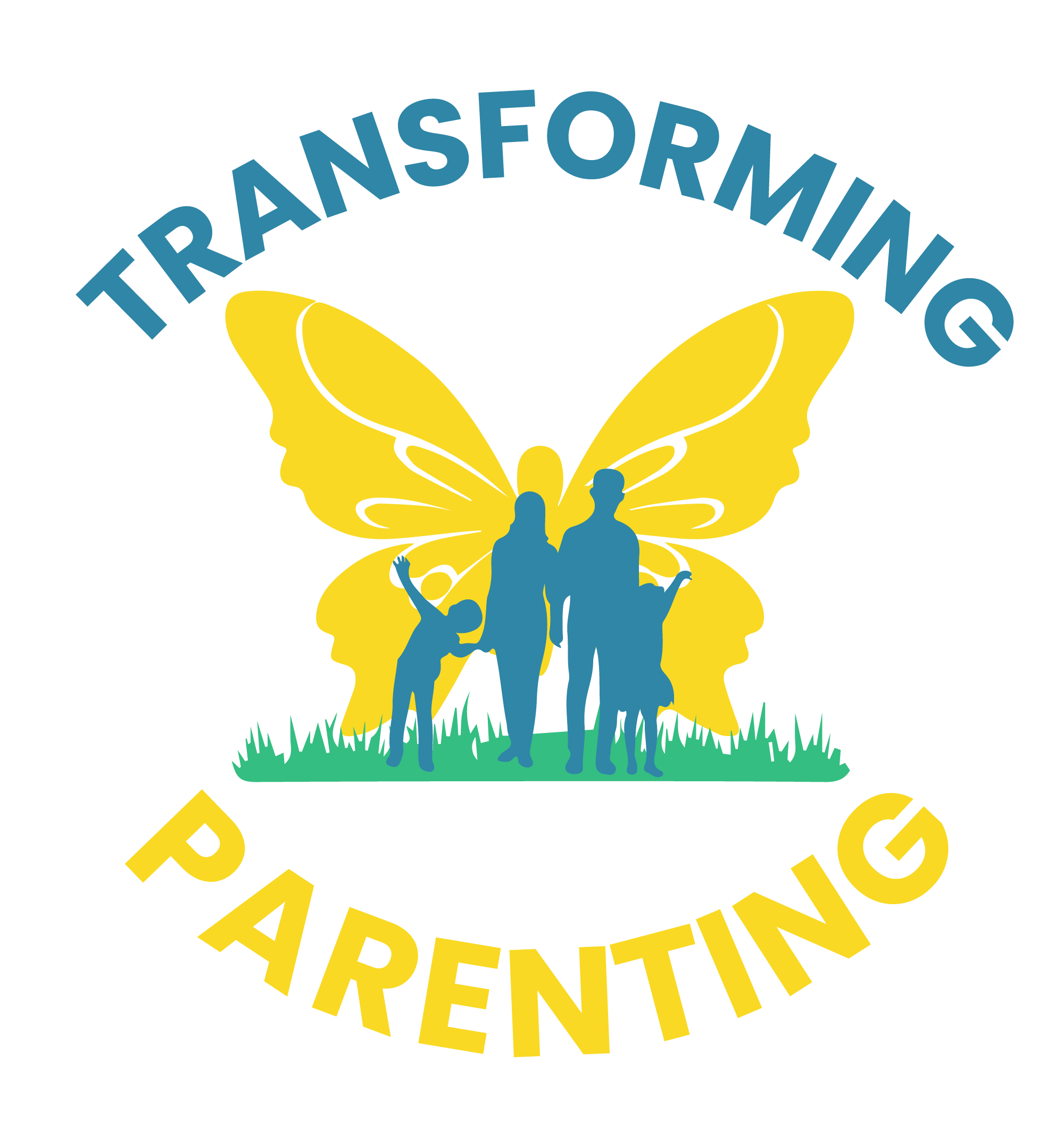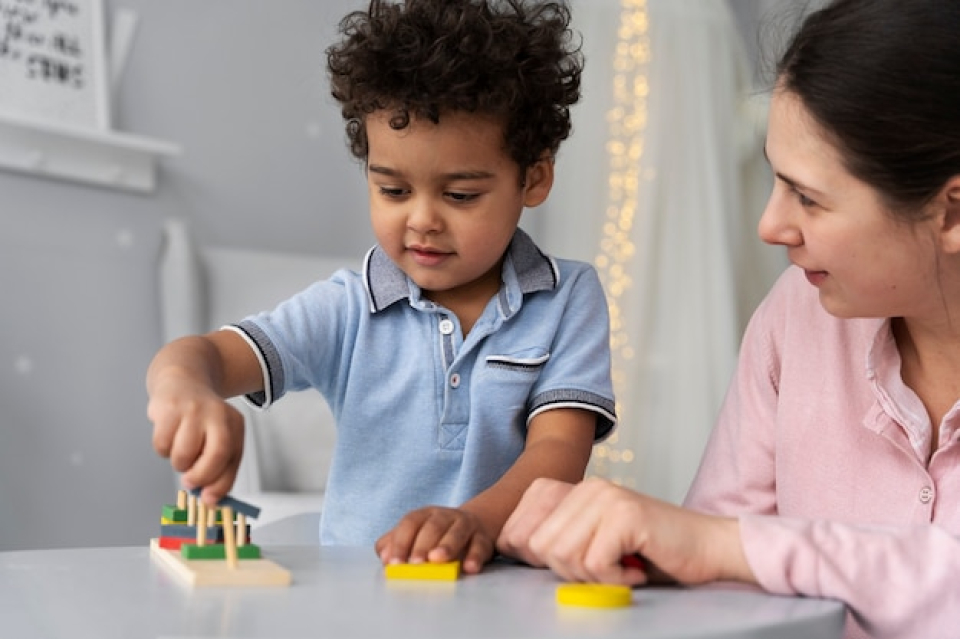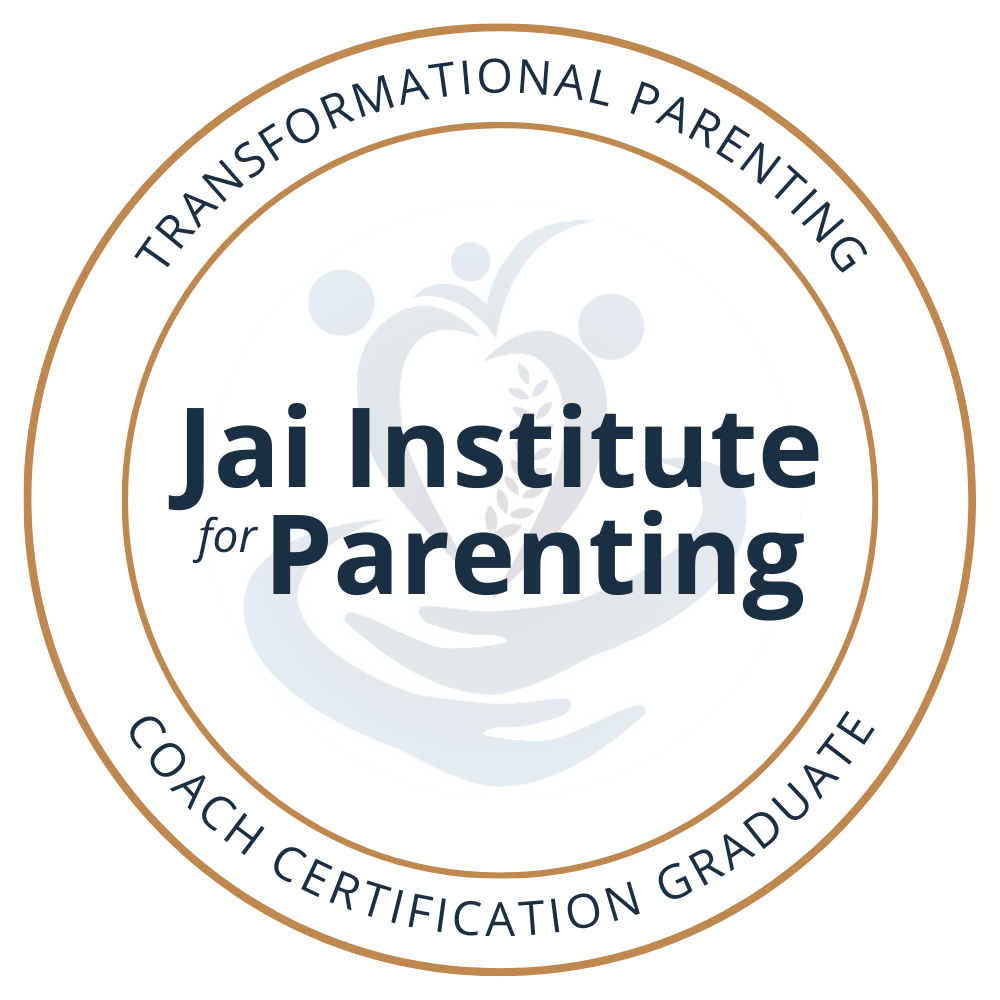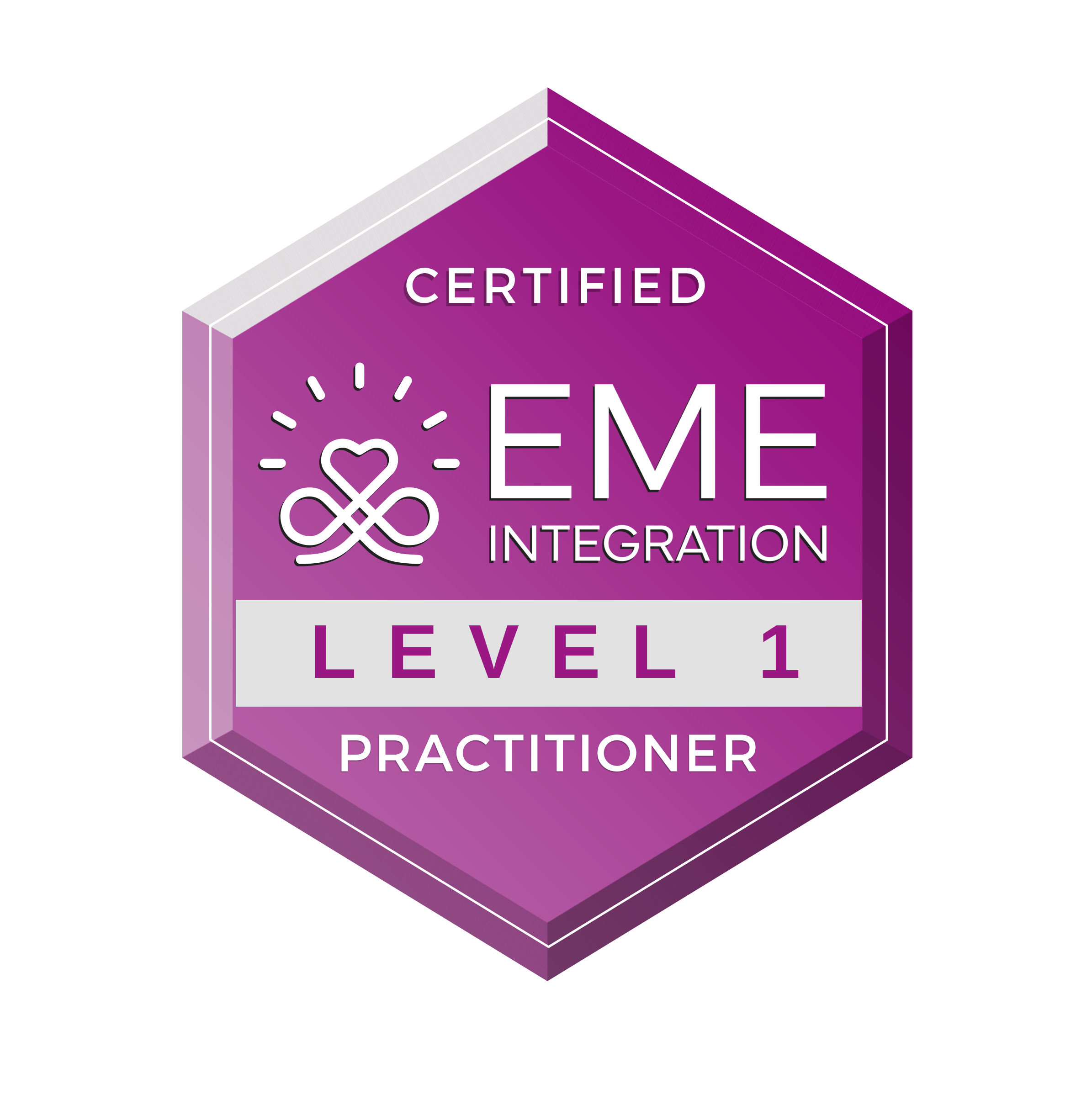Parenting is one of the hardest (if not the hardest) jobs in the world. Before having children, many of us assume that we will just “figure it out” on the job. Once our baby is here, we go through a sort of reality check, realizing how many questions we actually have and how little we know about what to expect as our child begins their rapid and miraculous growth.
Most parents have never even learned about brain development (because who has time for that as a parent, right?!) As our child grows, some of the big parenting questions that grow with us alongside them are:
“Is this normal?”
“Is my child ‘on track’ with meeting milestones and where they should be?”
“Am I doing what I need to as a parent to support my child’s growth and development?”
Parents ask these questions because we care so deeply for our kids, and underneath the questions is fear and/or care for getting it right and doing our best to support them. Let’s take a moment to acknowledge that beautiful intention we all carry as parents – to do the best for our kids.
In this article, we will explore the brain science behind childhood development so we can look at these questions with a new perspective. We will ultimately let go of fear and begin to rest and relax into the marveling and joy of watching our children grow.
How Does Understanding Brain Development Help With Parenting?
The development of a human brain is a complex process shaped by hereditary, environmental, and experiential factors. In a 2011 study, researchers Kolb and Gibb concluded that “the development of the brain reflects more than the simple unfolding of a genetic blueprint but rather reflects a complex dance of genetic and experiential factors that shape the emerging brain.” In other words, brain development in children is complex, and how we show up as parents to support the development process matters.
In their book Whole Brain Child, Dr. Daniel Siegel and Dr. Tina Bryson explain that “even the most caring, best-educated parents often lack basic information about their child’s brain.” It is surprising to realize this fact as our children’s brain indicates basically everything about who they are and what they do. As we learn more about our child’s brain development, we can better understand their needs at each age, recalibrate our expectations of their capabilities, respond with more compassion, and build a foundation for a happier and healthier life.
How Does the Brain Develop During Childhood?
The brain is the only organ that is underdeveloped at the time of birth. It develops more rapidly in the first five years of life than at any other time (Reference), and it grows to 90% of its adult size by age 5. In her book Brain Body Parenting, Mona Delahooke refers to these early years as a “developmental explosion” as the brain develops a million connections between neurons every second.
These early years are when a new human develops their initial impressions of the world and life itself. Babies subconsciously ask, “Will my needs be met? How, when, and by whom?” as they learn how to navigate the world and ultimately survive. Babies are watching and learning about who will show up for them and meet them in their needs. Simultaneously, parents and caregivers are learning how to attune, show up, and care for this new human.
All the while, parents try to balance careers and the fast-moving pace of the world. It is no wonder parenting can feel so stressful or even shocking as many of us have to confront our fantasies of having a baby and accept the reality of sleepless nights, the complete dependency our children have on us, and the deep responsibility of raising children.
From birth to age 3, children mostly use their low brain, also known as the “downstairs brain,” or reptilian or primitive brain. This part of the brain includes the brain stem, limbic region, and amygdala and is responsible for basic functioning, emotional reactions, and automatic responses to stay safe. During this early development, children work on their physical coordination, seek safety, and explore their environments. They have very little impulse control and are entirely dependent on co-regulation with their caregivers to calm their bodies as they feel their emotions.
In this stage of development, parents are confronting the reality of toddler tantrums and “rebelliousness” that often triggers parents to feel judgment and a desire to shut down the “behavior.” Mona Delahooke, in her book Beyond Behaviors, notes that “56 percent of parents believe that children have the impulse control to resist the desire to do something forbidden before age three. The truth: toddlers don’t start developing these abilities until age three and half or four at the earliest.”
From age 3-7, known as the “preoperational stage,” the middle brain is developing and maturing. In this stage of development, children are “egocentric” and struggle to see from another’s perspective (Reference). They still depend on co-regulation and understanding from their parents/caregivers when emotions arise and overwhelm them.
When a child faces high stress without co-regulation and understanding from a parent/caregiver, the child begins to develop limiting beliefs about themselves as a way to learn how to stay safe in the world. Parents during this time often have high expectations for their children to develop independence and regulation that may be beyond their developmental capacity.
The prefrontal cortex (PFC) is the latest brain region to mature (reference) fully. It does not begin to mature until the ages of 7-10 and is not fully developed until 25 years old (Reference). The PFC is the area of the brain we use to organize thoughts and experiences, critically think and solve problems, understand cause and effect, control impulses, self-regulate, focus attention, practice reasoning, understand abstract concepts, and empathize with others.
Essentially, the PFC is critical for developing life skills and qualities many parents aspire to nurture within their kids, such as kindness, grit, resilience, responsibility, self-worth, gratitude, intelligence, and more. Brain science shows us that it takes time to build these skills, and as parents, we put a lot of pressure on ourselves and our children to learn these skills early in their development, before their brains are fully developed or ready.
The amazing thing about the brain is that it is neuroplastic, which means it can change and grow at any time. There are infinite possibilities for how our brains can grow and change over a lifetime.
What Are the Most Important Influences On a Child’s Brain Development and Learning?
Once we know the science behind brain development in children, we can begin to understand (and release) the pressure and fear we bring into our parenting with our kids. We can start questioning whether our expectations align with what is developmentally appropriate and supportive.
Research consistently shows that the most important influence on a child’s brain development is warm, responsive, and connected relationships with their caregivers or parents (Reference). Dr. Dan Siegel and Dr. Tina Bryson discuss in their book The Power of Showing Up that the most important thing we can do as parents to support our kids in their development is to help them feel safe, seen, soothed, and thus secure in our relationship.
Research has proven a secure attachment between parent and child increases lifelong satisfaction and happiness, optimizes their sense of identity, improves the quality of their relationships, helps them succeed in their career, cope better with stressors, develop leadership qualities, and have higher emotional intelligence.
“Safe, seen, soothed, and secure” might sound easy, hard, foreign, or familiar, depending on your upbringing. Showing up for our kids in these ways requires great self-awareness, a coherent narrative about how we were raised, a dedication to embracing feelings and emotions without judgment, a commitment to connection with our kids, and choosing collaboration over power and authority. It is a challenging and worthy mission to commit to in exchange for our child’s happiness and security within themselves and in their lives.
How Can I Support My Child’s Brain Development?
Supporting your child’s brain development may have more to do with your own development than you might think. Below are some ideas of where to begin.
1. Prioritize your attachment with your child
With practice and dedication, we can find ways to hold our children to their highest potential through family values and modeling what we preach through our own embodiment while also prioritizing and committing to connection and respect in our relationship. Parent Coaches are an essential tool in this process.
2. Be present
Prioritizing connection with your kids does not mean enabling or sacrificing your needs as a parent in exchange for their needs or happiness. It also does not mean not letting children feel their emotions. Instead, it means giving them your deepest level of presence and listening to what they have to say. Instead of thinking, “I know best because I am the parent,” find ways to shift into places where you can be open and learn about who they are. Let them surprise you. In this time of technology overload, find ways to disconnect from devices and be as physically present as possible.
3. Commit to nervous system health and emotional regulation
Many of us do not realize how important nervous system science is to understanding why children and parents react the way they do. Notice where you are uncomfortable with your own emotions. Get to know your process for de-escalating during conflict and how you regulate your nervous system during times of stress. Parenting can be a chronically stressful experience, and we can get lost in the stress or practice regulating.
4. Let them play and play with them
Play is not just for fun; it is essential for brain development. Through play, children explore, problem-solve, and develop crucial skills such as creativity, communication, and collaboration. By practicing these skills in play, they experience their inner leadership and learn in their own intrinsically motivated ways. Playing with our kids is a great way to foster connection and to meet them in their world.
5. Present your child with many experiences to learn in ways that light them up and are without force and rigidity
Learning happens best when children feel intrinsically motivated and emotionally regulated (Reference). The more experiences we give our children, the more potential they have to grow and expand their knowledge. The more we can trust and support their curiosities and interests, the more quickly they can learn.
6. Have a family value of health and nutrition To maximize brain development potential, ensure that your family prioritizes sleep, rest, slowness for integration, and healthy eating.
7. Embrace your child’s uniqueness
Every child is unique, and their brain development will ebb and flow on their own timeline. It is essential for parents to understand and appreciate their child’s individual strengths, challenges, and interests to cultivate a deep sense of self-understanding, authenticity, and self-trust.
If you want to learn more about where to start on this journey and how to maximize your child’s brain development, read The Peaceful Parenting (R)evolution: Changing the World by Changing How We Parent by Kiva Schuler. As Kiva states, “Parenting is not prescriptive. It is a living, breathing dance of meeting the moment with presence and commitment.”





